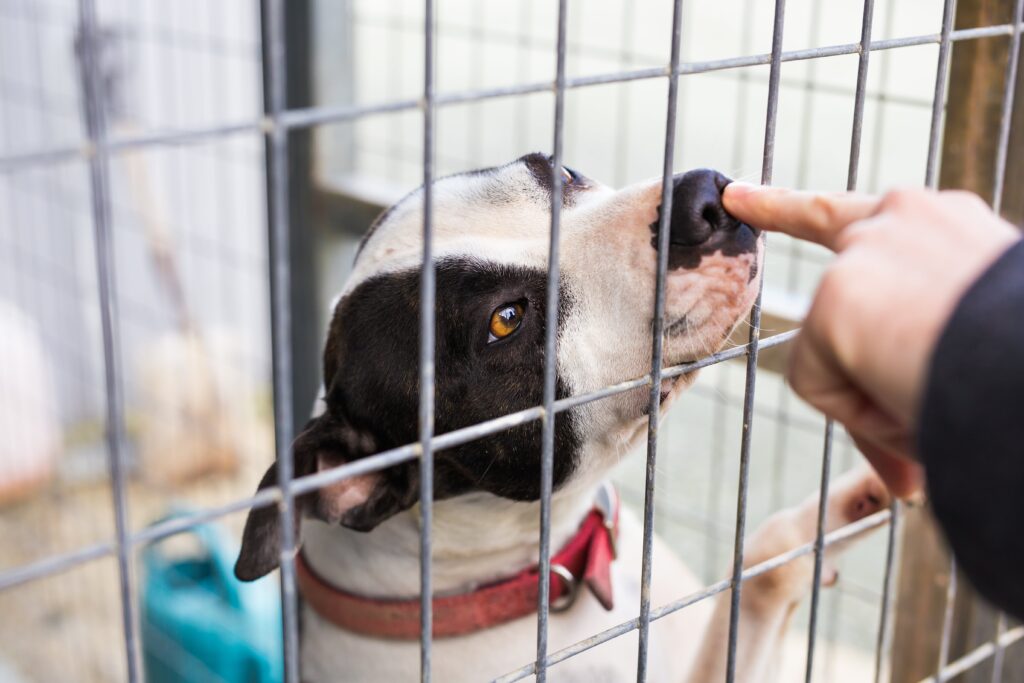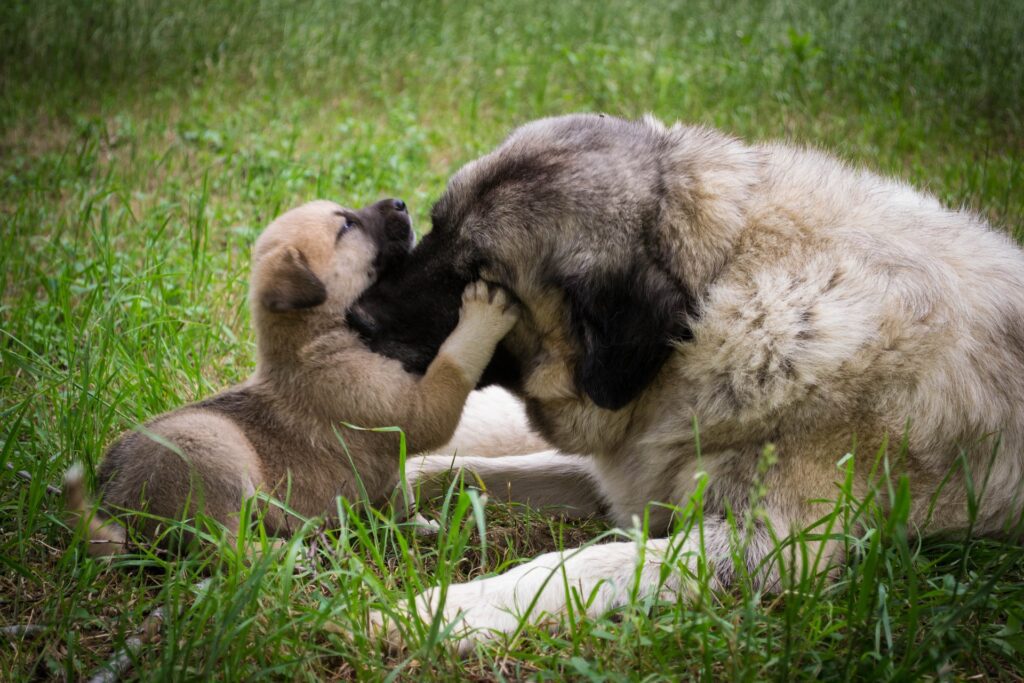What you need to know before you choose to buy or adopt a dog
Choosing to buy a dog from a breeder or adopt from your local rescue shelter can feel like a very tough decision. There are many passionate advocates for both paths.
Animal rights advocates will argue that you should aim to save a life rather than support puppy farms and designer pedigree dog breeding practices. And reputable breeders will argue that the more you know about the history of your pet the better informed you will be about their character, temperament, looks and potential medical issues.
No matter what you choose, taking the time to do your research will help you feel more informed – ensuring you avoid a spontaneous decision that causes issues in the future.
To help with this research, the Furbubba team have compiled some hints and tips to help you adopt from a shelter or buy from a breeder…

Adopting a rescue dog, what to look for?
Providing a home to one of the many puppies or dogs in need will not only give you an amazing feeling of saving a life, but it is also much easier to adopt and can be cheaper on the hip pocket.
There’s usually a few rescue homes or shelters around your area and some breeders will also take in strays and rehome specific breeds. Ask your local vet for their opinion, they always have good insight as they usually know what’s going on in the local area.
Online pet adoption
For some people, visiting a shelter can understandably be an overwhelming experience which is why online pet adoption websites such as Pet Finder, Pets 4 Homes, and Pet Rescue do a great job of connecting pets in need of a new home with potential fur-parents. And in some countries, the SPCA – Society for the Prevention of Cruelty to Animals offers an adoption database.
Questions to ask the shelter
It may feel like there is more risk involved in choosing a rescue dog but this is not true – see Pet Finders 5 misconceptions about adoption.
You can get a lot of insight from the shelter or foster parents. Here are some questions you should ask before committing to adopt a dog:
- Why is this dog in the shelter (eg. owner surrender, rescue, stray)
- Do they know why the owner surrender the dog?
- Is the dog here as a result of animal cruelty charges against the previous owner?
- If a stray, where they found?
- What condition was the dog in when they arrived at the shelter?
- Has this dog been adopted before?
- What veterinary care has the dog received since arriving?
- Does the dog require any special medical care, ongoing treatment or dietary requirements?
- Is the dog housebroken?
- Where does the dog sleep?
- Does the dog get along with the other pets, strangers and children?
- How does the dog behave when groomed, bathed, clipped, nails trimmed etc?
- How active and energetic is the dog during the day and during the night?
- Are there any behavioural concerns – anxious, barking excessively?
- See if the dog can walk calmly on a leash
- Connect, spend time patting, playing, looking into each other’s eyes
Take the time to find the right match
Don’t feel pressured into adopting a particular dog. You have the right to say no and find the perfect match. Unfortunately, you can’t save every one of them but as they will be part of your life for a long time, it is important to take the time you need to make the right decision.
Trust your instincts, you’ll know when it feels right.
And a good shelter will be willing to take the dog back if things don’t work out between you. This should give you confidence that they’ll make the effort in matching you with the right dog in the first place.

A guide to buying from a breeder
Where to find a really good breeder?
If you are wanting a specific breed of dog the best place to start to find a reputable breeder is the local “Kennel Club” or “Canine Council” in your county. For example…
- United Kingdom – The Kennel Club KCAB
- International – United Kennel Club UKC
- USA – American Kennel Club AKC
- Canada – The Canadian Kennel Club CKC
- Australia – The Australian National Kennel Council ANKC
- Germany – The German Kennel Club VDH
Kennel Clubs are responsible for promoting breeding, showing, trialling, obedience, and other canine-related activities. They maintain registration of pedigree bloodlines and champion the standards for temperamentally and physically sound purebred dogs. They debate and influence lawmakers, set standards for registered breeders and help connect owners with reputable breeders.
There, you can find the breed you’re looking for and find out when a new litter is available.
Avoid puppy farms
You won’t find quality puppies being advertised in online classifieds or available at your local pet store. Be careful you don’t unknowingly support a puppy farm or a puppy mill, and narrow gene pool breeding of designer pedigrees.
If you want a quality puppy from a reputable breeder, its best to go and visit them. Why? Because you get to see how the puppies are kept in the facilities and how they interact with each other, their breeder and strangers – like you and your family!
Before you visit any breeder, do your own in-depth research on the breed you’re interested in so that you know the strengths and weaknesses of the breed and have the relevant questions to ask.
What to look for when visiting a breeder
When you get to the breeder look for the following:
- Are the puppies clean and odour free?
- Are they well fed, not overweight or underweight?
- Ask to see where the adults sleep. Are the pups kept with their parents?
- Ask to meet the adult dogs so you can see what the parents are like. Gauge their temperament, general appearance and behaviour around you and your children
- Are they friendly? The puppies and parents should be approachable and not be scared or shy away
- Ask the owner about the breed. You want to check that they are honest and knowledgeable about the genetic history and any genetic conditions. Some breeds will require certificates to that show that their dogs have been tested and are free from certain genetic conditions
- A good breeder will talk you through what interaction and play their puppies get from them, and what good habits they are taught
- Ask about feeding and immunisations
- A good breeder will also ask you questions, they will want to know that their puppies are going to a safe and happy home
What happens next?
If you like what you see and get on with the breeder, you’ll be asked to put down a deposit to hold a particular puppy or to be on the waiting list for the next new litter that comes along.
Depending on your timing you might have first pick from the next litter, or you may have to wait for the following litter. Before you leave a deposit ask the breeder how many people are on the wait list, and what cancellation rights you have.
Remember this is not like ordering from a factory. You may be waiting a while. Good breeders have a reputation to keep and a waiting list to match.
Buying a pedigree puppy is never an absolute guarantee even when you buy from a reputable breeder who has two healthy pedigree dogs with a solid temperament. But if you’ve done your research well and compared a couple of breeders, then you should be in good hands.
So, which one is best? Buying or Adopting?
Of course, there are pros and cons for both. And there is no right or wrong answer.
For some, a reputable breeder provides a level of security but the costs will be higher, and you will most likely have to wait a while.
Whereas a rescue dog from a shelter is far more instantaneous and comes with that wonderful feeling of giving someone a second chance at life.
It’s not an easy choice and maybe you should explore both roads as part of your research. But at the end of the day, you have to trust your gut. It is a very personal, emotional decision and either way your new furbubba will become your best friend and reward you with unconditional love.

Check out our checklist – with some great tips on what to buy before bringing home your new dog!

We would love to hear your thoughts on this topic of buying or adopting. And we appreciate your contribution to helping our community make an informed decision. But we do ask you to please respect that other people may have a different opinion to yours.